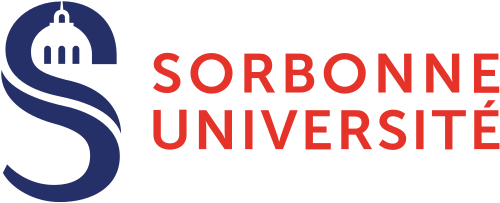The 9th Summer School on Computational Interaction, ACM Europe School will be held at Sorbonne Université (Campus Pierre et Marie Curie) on June 16 – 20, 2025.
This summer school teaches HCI students, researchers, and industry professionals computational methods and their application in user interface design, interactive systems, user modeling, and more. Each day will feature one or two outstanding speakers who will share their expertise on a technical topic relevant to Computational Interaction. Individual lectures will give students an overview of different topics in Computational Interaction, and will include exercises that will give students hands-on experience with Computational Interaction research.
Topics
We put together a remarkable program that features the leading experts in the area of computational interaction. These are the confirmed topics so far:
– Forward and inverse modelling in input, by John H. Williamson, University of Glasgow, Scotland
This session will discuss Bayesian probabilistic approaches to interactive system engineering. It will contrast this to traditional ML approaches and discuss how probabilistic inference is a distinctive and fruitful approach to building interactive systems. The session will bring together modern probabilistic Bayesian models and machine learning approaches and demonstrate practical implementations.
– Agent-Based UI Programming, by Lydia Chilton, Columbia University, USA
We will introduce multiple techniques for LLM-based code synthesis for creating dynamic user interfaces that give users precise control over their outputs. We will show how agent-based architectures can create and extend applications from only high-level descriptions of ideas. We will also show how to pair agent-based code generation and agent-based user simulation to create « double agent loops » that can generate code that is robust to a large array of user behaviors. Applications include creating animated logos, developing the MVP of a web app, and solving complex planning problems with minimal human intervention.
– Modeling interactive behavior with computational rationality, by Antti Oulasvirta, Alto University, Finland
Cognitive models simulate how users perceive, think, and act when interacting with computers. They offer a powerful approach for understanding and optimizing interactive systems. This block starts with a review of so-called architecture based models of cognition such as GOMS and ACT-R. We then introduce modern modeling approaches powered by machine learning methods, in particular deep reinforcement learning. The block offers hands-on Python programming experience with notebooks
– Reinforcement Learning for Computational Rational User Models, by Thomas Langerak
State-of-the-art user models rely on Reinforcement Learning (RL) for interactive behavior to emerge. In this module, we begin by covering the fundamentals of RL and exploring their relationship to user modeling. We then progress to a hands-on Python notebook session, where participants will train a cognitive model to play the popular game Overcooked
– Demystifying Large Language Models and exploring new Frontiers in Interaction and User Experience, by Laure Soulier, Sorbonne Université, France
Large Language Models (LLMs) are now standard models in natural language processing and computer vision, but also powerful tools for interdisciplinary research. In this talk, we will dive deep into the inner workings of large language models by exploring the backbone architecture of current models called Transformer, the training and fine-tuning processes as well as the emergent abilities. We will discuss how LLMs impact research based on users’ interactions (such as information retrieval) but also how it can improve the information accessibility.
The practical session will include some basic notions around LLMs with application on different tasks closed to HCI (conversational agents, simulating user data, …).
– Computational mechanisms engaged in theory of mind: from dyadic interactions to group decision making, by Jean Claude Dreher and Toan Nong, Institute of Cognitive Sciences, CNRS, France
Successful social interactions rely on the capacity to adjust to the intentions of others, which can change between competition and cooperation over time. This ability is a critical component of the theory-of-mind. Yet, the computational mechanisms underlying adaptation to fluctuating intentions of others (humans or artificial agents) are not well understood. This question is important if we want future artificial systems to adapt smoothly to our fluctuating intentions in real-time.
In this talk, I will present algorithms underlying how we adapt when we need to infer the intentions of others in dyads and groups, such as whether others intend to collaborate or compete?
The practical session, led by Toan Nong, will show programming examples implementing computational models of different behavioral tasks previously published by our group (Philippe et al., Nat. Comm., 2024; Park et al., Nat. Comm., 2019; Khalvati et al., Science Advances, 2019).
Schedule
June 16, 3:00PM – 7:00PM: Opening; Poster; Cocktail
June 17, 9:00AM – 12:00AM: keynotes + exercices (Lydia Chilton)
June 17, 2:00PM – 5:00PM: keynotes + exercices (Laure Soulier)
June 18, 9:00AM – 12:00AM : Keynotes + exercices (Thomas Langerak)
June 18, 2:00PM – 5:00PM: Keynotes + exercices (Antti Oulasvirta)
June 19, 9:00AM – 12:00AM : keynotes + exercices (j. Williamson)
June 19, 2:00PM: Panel; Lab tour; Social event
June 20, 9:00AM – 12:00AM: Friday morning: Keynotes + exercices (J. Dreher + T. Nong)
June 20, 2:00PM – 3:00PM: Closing
Link to the summer school website.
Host : Gilles BAILLY (CNRS research director at ISIR) ; Julien GORI (CNRS research fellow at ISIR) and Theophanis TSANDILAS (Inria Saclay, France).
Published the 10/06/2025.



